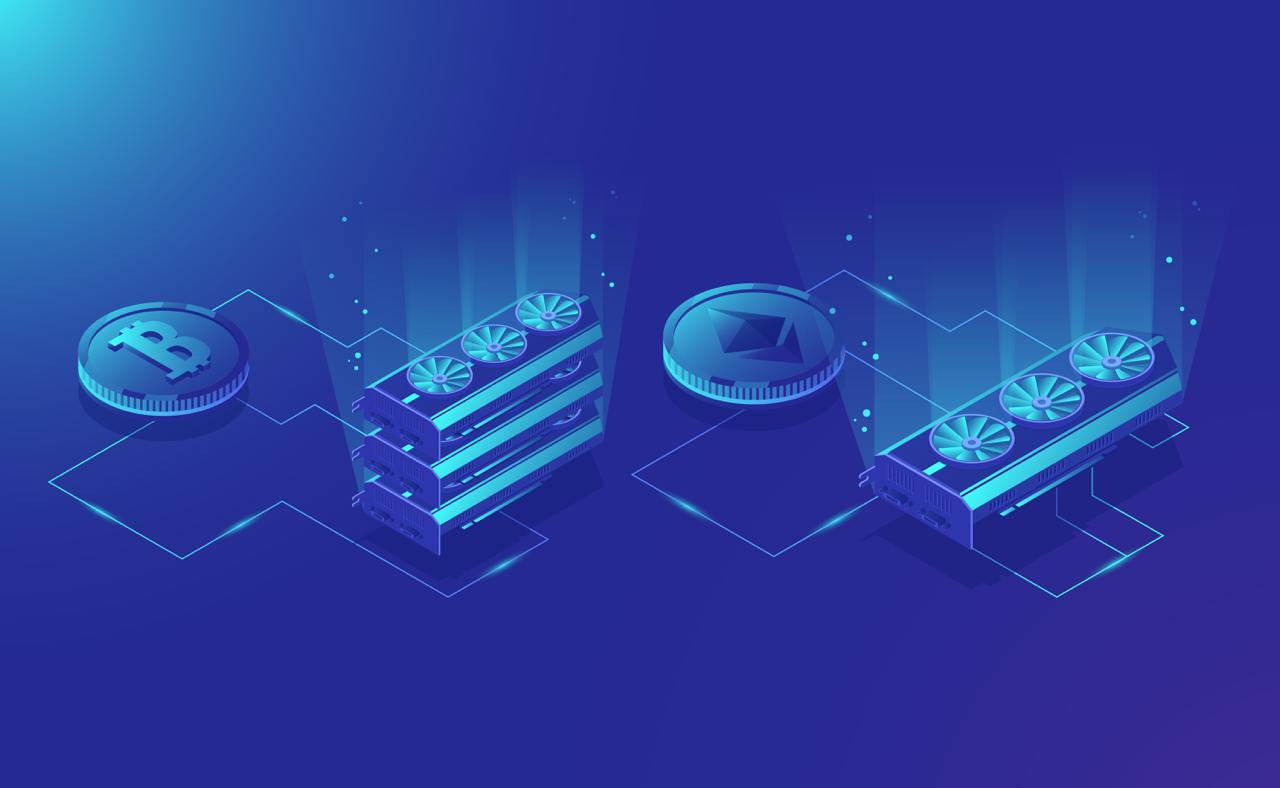In recent years, Walmart’s blockchain initiatives have captured the attention of the retail and food industries. With the adoption of this groundbreaking technology, blockchain in Walmart has proven to be a game-changer in enhancing transparency, traceability, and efficiency within the company’s global supply chain. How Walmart uses blockchain and its partnership with IBM has not only set new industry standards but has also demonstrated the potential of blockchain technology to revolutionize supply chain management and food safety.
How Does Walmart Fit In?
Walmart and blockchain have become synonymous with innovation in supply chain management. As a global retail giant, Walmart recognized early on the potential of blockchain technology to address challenges such as food safety, fraud, and inefficiency. The company’s collaboration with IBM has resulted in the creation of the IBM Food Trust platform, a decentralized network that provides real-time data sharing across the supply chain. How does Walmart use blockchain? By integrating blockchain technology into its operations, Walmart has been able to enhance transparency and ensure that only safe, high-quality products reach consumers.
The Agriculture Supply Chains
Agriculture supply chains are complex and involve multiple stakeholders, including farmers, suppliers, distributors, and retailers. Managing these supply chains efficiently and ensuring food safety has always been a challenge for large companies like Walmart. Traditional supply chain systems often lack transparency and are prone to errors, delays, and fraud. This is where blockchain and Walmart come into play.
- Blockchain supply chain Walmart solutions offer a transparent and immutable ledger that records every transaction in the supply chain, from farm to shelf. By using blockchain, Walmart can trace the origin of products in real-time, reducing the risk of contamination and ensuring that only safe products reach consumers. This is particularly important in the agriculture sector, where food safety is a top priority.
- Walmart blockchain case study examples show how the company has successfully implemented blockchain technology to improve food safety and traceability in its supply chains. For instance, Walmart’s blockchain initiatives have focused on tracking perishable goods such as leafy greens, mangoes, and pork. These products are particularly susceptible to contamination and fraud, making them ideal candidates for blockchain supply chain Walmart solutions.
The use of blockchain in Walmart agriculture supply chains has led to significant improvements in transparency and traceability. For example, in the case of mangoes, Walmart was able to reduce the time needed to trace the origin of a mango from seven days to just 2.2 seconds. This rapid traceability is crucial in the event of a food safety issue, as it allows Walmart to quickly identify the source of contamination and remove affected products from store shelves.
- Blockchain Walmart solutions also help to build trust between Walmart and its suppliers. By providing a transparent and verifiable record of every transaction, blockchain ensures that all parties in the supply chain are held accountable. This increased accountability leads to a more efficient and reliable supply chain, benefiting both Walmart and its customers.
- Moreover, Walmart blockchain technology is not limited to food safety. The company has also explored the use of blockchain in other areas of its operations, such as freight and payments. For example, Walmart Canada blockchain initiatives include a blockchain-based platform for managing freight and payments. This platform automates the invoicing and payment process for freight carriers, reducing the time and effort required to manage these transactions.
How is Walmart using blockchain in its agriculture supply chains? The company has implemented a range of blockchain solutions that address specific challenges in the supply chain, from traceability to payment processing. These solutions have not only improved the efficiency and reliability of Walmart’s supply chains but have also set new standards for the industry as a whole.
Why Blockchain is a Worthwhile Solution for Food Supply Chain Management
The adoption of blockchain Walmart solutions has shown that blockchain is a worthwhile solution for managing food supply chains. Blockchain technology Walmart has the potential to address many of the challenges that traditional supply chain systems face, such as lack of transparency, delays, and fraud.
- One of the key benefits of Walmart and blockchain technology is the ability to provide real-time traceability. In the event of a food safety issue, Walmart can use blockchain to quickly trace the origin of a product and identify the source of contamination. This rapid traceability is crucial in preventing the spread of foodborne illnesses and minimizing the impact of recalls.
Does Walmart use blockchain? Yes, and the company’s blockchain initiatives have demonstrated the potential of the technology to revolutionize supply chain management. By providing a transparent and verifiable record of every transaction, blockchain ensures that all parties in the supply chain are held accountable, leading to a more efficient and reliable supply chain.
- Another benefit of Walmart blockchain technology is the ability to reduce costs. Traditional supply chain systems often involve multiple intermediaries, each of whom adds to the cost of the product. By using blockchain to automate processes and reduce the need for intermediaries, Walmart can reduce costs and pass these savings on to consumers.
- Finally, IBM and Walmart blockchain initiatives have helped to build greater trust between Walmart and its customers. By providing consumers with access to detailed information about the origin and quality of the products they purchase, blockchain has empowered consumers to make more informed choices. This increased transparency has led to greater consumer confidence in the safety and authenticity of Walmart’s offerings.
How Did the Walmart Blockchain Story Begin?
The story of blockchain Walmart began in 2016 when Walmart partnered with IBM to explore the potential of blockchain technology for improving food safety and supply chain management. The collaboration between IBM and Walmart blockchain experts led to the development of the IBM Food Trust platform, a blockchain-based solution designed to enhance transparency and traceability in the food supply chain.
IBM blockchain Walmart initiatives began with a pilot program focused on tracing the origin of mangoes in Walmart’s supply chain. The pilot program was a success, demonstrating the potential of blockchain to revolutionize supply chain management. By leveraging blockchain technology, Walmart was able to reduce the time needed to trace the origin of a mango from seven days to just 2.2 seconds.
Encouraged by the success of the pilot program, Walmart blockchain supply chain initiatives were expanded to include other perishable products, such as leafy greens, pork, and seafood. These products are particularly susceptible to contamination and fraud, making traceability and transparency crucial.
The success of Walmart blockchain food safety initiatives has led to the broader adoption of blockchain technology across Walmart’s global supply chain. Today, Walmart continues to work with IBM and other partners to develop and implement blockchain solutions that enhance transparency, traceability, and efficiency in the supply chain.
How does Walmart use blockchain today? The company has implemented a range of blockchain solutions that address specific challenges in the supply chain, from traceability to payment processing. These solutions have not only improved the efficiency and reliability of Walmart’s supply chains but have also set new standards for the industry as a whole.
Walmart’s Steps to Master Blockchain Technology
Walmart’s journey to mastering blockchain technology has been marked by a series of strategic steps that have positioned the company as a leader in the use of blockchain for supply chain management and food safety. Here’s how Walmart and blockchain have achieved this:
- Dedicated Blockchain Team: Walmart recognized early on that successfully implementing blockchain technology would require a dedicated team of experts. The company assembled a team of blockchain specialists who were tasked with exploring the potential of blockchain, developing use cases, and overseeing the implementation of blockchain solutions across Walmart’s supply chain. This team worked closely with IBM and other partners to ensure that Walmart’s blockchain initiatives were aligned with the company’s strategic goals and operational needs.
- Supplier Education: For blockchain to be effective, it requires the participation and collaboration of all stakeholders in the supply chain, including suppliers. Walmart recognized the importance of educating its suppliers about the benefits of blockchain and how to use the technology effectively. To this end, Walmart conducted training sessions, workshops, and webinars to help suppliers understand the potential of blockchain and how it could improve their operations. By ensuring that suppliers were on board with its blockchain initiatives, Walmart was able to create a more cohesive and efficient supply chain.
- Expansion of Blockchain Initiatives: After the success of its initial pilot programs, Walmart began expanding its blockchain initiatives to include more products and regions. This expansion was guided by a strategic roadmap that identified key areas where blockchain could have the greatest impact, such as perishable goods, high-risk regions, and complex supply chains. By systematically rolling out blockchain solutions across its global supply chain, Walmart was able to achieve significant improvements in transparency, traceability, and food safety.
- Industry Advocacy: Walmart has played a key role in driving industry-wide adoption of blockchain technology. The company has been an advocate for the development of blockchain standards and best practices, working with industry groups, regulators, and other stakeholders to promote the use of blockchain in supply chain management. By leading the way in blockchain adoption, Walmart has helped to create a more transparent, efficient, and secure food supply chain for the entire industry.

Strategic Impact of Walmart’s Blockchain Initiatives:
- Positioned as an Industry Leader: Walmart’s successful implementation of blockchain technology has positioned the company as a leader in the use of blockchain for supply chain management and food safety. Other companies are now looking to Walmart as a model for how to leverage blockchain to improve their own operations.
- Increased Collaboration: Walmart’s efforts to educate its suppliers and promote industry-wide adoption of blockchain have led to greater collaboration across the supply chain. This collaboration has resulted in a more cohesive and efficient supply chain, with all stakeholders working together to ensure the safety and quality of products.
- Innovation and Continuous Improvement: Walmart’s blockchain initiatives have driven innovation and continuous improvement within the company. By embracing new technologies and constantly seeking ways to improve its operations, Walmart has been able to stay ahead of the competition and maintain its position as a global retail leader.
Walmart and IBM Building Food Trust
The collaboration between Walmart and IBM blockchain experts has been instrumental in the development and implementation of the IBM Food Trust platform. This blockchain-based solution is designed to enhance transparency and traceability in the food supply chain, ensuring that only safe, high-quality products reach consumers.
IBM blockchain Walmart initiatives have focused on creating a decentralized network that allows all stakeholders in the supply chain to share data in real-time. This transparency is crucial for ensuring food safety and building trust between Walmart, its suppliers, and consumers.
Walmart blockchain IBM efforts have led to the successful implementation of the Food Trust platform across Walmart’s global supply chain. The platform has proven to be a powerful tool for enhancing transparency, traceability, and efficiency in the supply chain, setting new standards for the food industry.
Walmart China Continues its Blockchain Experience
Blockchain Walmart initiatives have also extended to Walmart’s operations in China. Walmart and blockchain technology have been used to improve food safety and traceability in the Chinese market, where food safety concerns are a top priority for consumers.
Walmart China blockchain efforts have focused on tracking the origin of products such as pork, which is a staple in the Chinese diet. By using blockchain to provide real-time traceability, Walmart has been able to ensure that only safe, high-quality pork reaches its Chinese customers.
The success of Walmart blockchain technology in China has led to the expansion of blockchain initiatives across the country. Walmart continues to work with IBM and other partners to develop and implement blockchain solutions that enhance transparency, traceability, and efficiency in its Chinese supply chain.
Walmart’s Lettuce on Blockchain in the US
In the United States, how Walmart uses blockchain has been particularly evident in the management of leafy greens, such as lettuce. The company’s blockchain Walmart initiatives have focused on enhancing traceability and transparency in the supply chain for these perishable products.
Walmart blockchain supply chain solutions have enabled the company to trace the origin of a head of lettuce in just seconds, ensuring that any contaminated product can be quickly identified and removed from store shelves. This rapid traceability is crucial in preventing the spread of foodborne illnesses and ensuring consumer safety.
By using blockchain Walmart solutions to manage its lettuce supply chain, Walmart has been able to improve food safety, build consumer trust, and set new standards for the industry.
Canadian Stores Have Also Joined
Walmart’s blockchain initiatives have also extended to its operations in Canada. Walmart Canada blockchain efforts have focused on enhancing transparency, traceability, and efficiency in the supply chain for freight and payments.
Blockchain IBM Walmart collaboration in Canada has resulted in the development of a blockchain-based platform that automates the invoicing and payment process for freight carriers. This platform records every transaction on an immutable ledger, ensuring that all parties have access to accurate and up-to-date information.
Walmart IBM blockchain supply chain solutions in Canada have led to significant improvements in operational efficiency, transparency, and trust between Walmart Canada and its freight carriers.
Walmart Blockchain Innovation: The Impact on the Food Industry
Walmart blockchain innovation has had a profound impact on the food industry, setting new standards for transparency, traceability, and food safety. Here’s how blockchain Walmart initiatives have transformed the industry:
- Setting a New Standard for Transparency: Blockchain in Walmart has set a new standard for transparency in the food industry. By providing a transparent and verifiable record of every transaction, blockchain has made it more difficult for unethical practices, such as fraud and mislabeling, to occur.
- Revolutionizing Food Safety: Walmart blockchain food safety initiatives have revolutionized food safety by providing unparalleled traceability. In the event of a food safety issue, companies can use blockchain to quickly trace the origin of a product and identify the source of contamination.
- Driving Industry-Wide Adoption: The success of Walmart blockchain technology has inspired other companies to explore the potential of blockchain for their own operations. This industry-wide adoption of blockchain is expected to lead to greater collaboration, improved food safety, and increased consumer trust across the entire food industry.
- Empowering Consumers: Walmart and blockchain technology have empowered consumers to make more informed choices by providing access to detailed information about the origin and quality of the products they purchase.
- Supporting Sustainable Practices: Walmart blockchain technology can also support sustainable practices in the food industry by providing a transparent record of a product’s journey from farm to shelf.
Conclusion
Walmart’s pioneering use of blockchain technology has transformed the way the company manages its supply chain and ensures food safety. Walmart and blockchain initiatives, in collaboration with IBM, have set new standards for transparency, traceability, and efficiency in the retail and food industries. IBM and Walmart blockchain efforts continue to drive industry-wide adoption of blockchain, contributing to the overall success of Walmart’s global operations. As blockchain technology continues to evolve, how Walmart uses blockchain will likely continue to shape the future of the food industry, ensuring that consumers have access to safe, authentic, and high-quality products.




